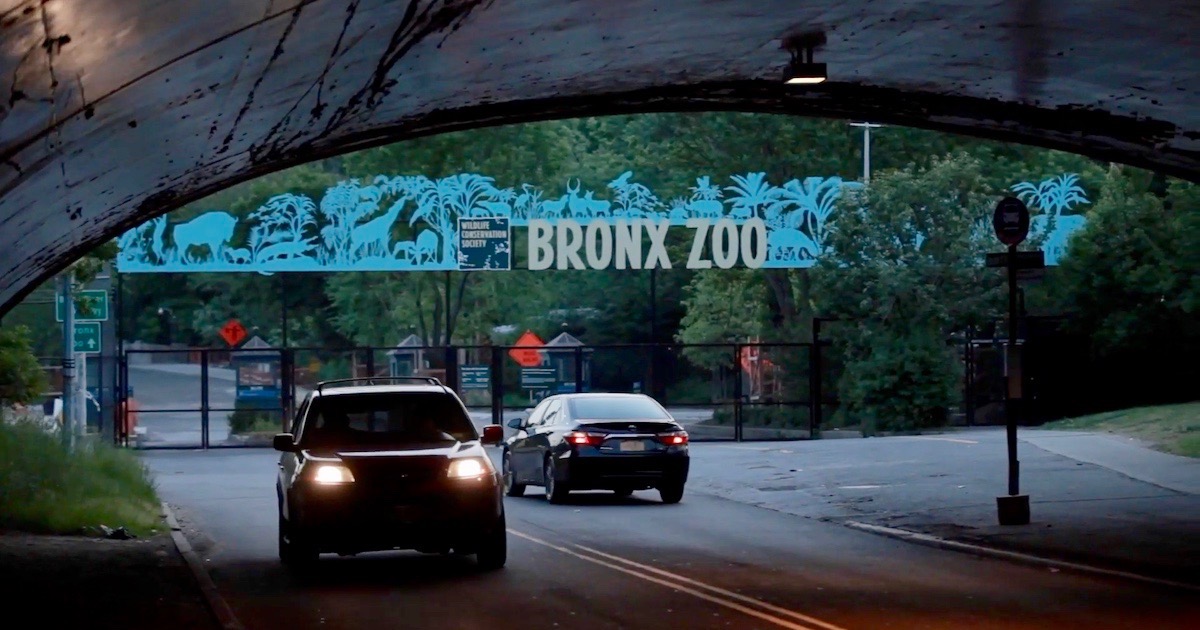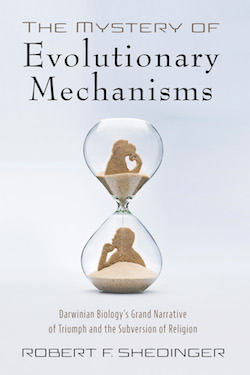 Culture & Ethics
Culture & Ethics
 Evolution
Evolution
What’s at Stake in the Debate over Darwinism?


Editor’s note: Dr. Shedinger is a Professor of Religion at Luther College in Decorah, Iowa. He is the author of a new book critiquing Darwinian triumphalism, The Mystery of Evolutionary Mechanisms: Darwinian Biology’s Grand Narrative of Triumph and the Subversion of Religion, from which this post is adapted.
Why does it matter whether Darwinian evolution is true? Isn’t this just an academic debate with no practical consequences? Not at all. The practical consequences may not be immediately apparent to some people, but they are nevertheless real.
As we know, Darwinian evolution is based on the philosophical premise of methodological naturalism — the idea that science is defined as the search for only naturalistic explanations for the phenomena under study. While some scientists protest that methodological naturalism should be distinguished from metaphysical naturalism — the idea that reality is nothing more than matter and energy in motion — in practice the two are hard to distinguish. The list of biologists who have drawn sweeping philosophically naturalistic conclusions about life and meaning based on Darwinian principles reads like a Who’s Who of the field: Huxley, Fisher, Mayr, Crick, Monod, Provine, Futuyma, Dawkins, Dennett, Wilson, etc. It is hard to argue that Darwinian evolution does not function as a stand-in for naturalistic atheism regardless of what Darwin’s own religious views may have been.
On Further Inspection

But critics will frequently complain, “Not all biologists are atheists.” On the surface this is true. On further inspection, we find that those who try to hold to a position of theistic evolution often sink into intellectual incoherence. For example, Theodosius Dobzhansky is often considered the most “religious” of the shapers of modern evolutionary theory. A devout Russian Orthodox Christian (who labeled himself both a creationist and an evolutionist!), Dobzhansky became a strong supporter of the evolutionary theism of Pierre Teilhard de Chardin, even serving for a year as president of the North American Teilhard Society. But in his widely cited article “Nothing in Biology Makes Sense Except in the Light of Evolution” (1973), Dobzhansky’s theistic evolution seems to run aground.
In commenting on the phenomenon of extinction, he argues that it would have made no sense for God to create all of these creatures ex nihilo, only to let almost all of them disappear into extinction. This is a coherent argument for an atheist to make, but as someone who affirms God as the ultimate Creator, Dobzhansky is saying that God created all these creatures (even if not ex nihilo) only to let almost all of them go extinct! In another place, Dobzhansky repeats the orthodox Darwinian line that natural selection has no plan, purpose, or ultimate goal. But just a few lines later, he calls humans the “apex of evolution,” ignoring the problem that a directionless process by definition has no apex. By trying to adhere simultaneously to an orthodox Darwinian principle and a traditional Christian view of humanity, Dobzhansky’s argument dissolves into intellectual incoherence.
The Option of Theistic Evolution
Similar problems plague National Institutes of Health director Francis Collins’s arguments in The Language of God (2006). While adhering to a strong methodological naturalism in his biological work, Collins argues that the Big Bang cries out for a supernatural explanation, for in his view the universe could not be self-creating. He may be right on this last point, but it is intellectually incoherent to posit the direct action of a supernatural power in cosmology while excluding it from biology. Kenneth Miller falls into similar incoherence in Finding Darwin’s God (1999), but space will not permit a full discussion here.
Theistic evolution does not appear to be a coherent option, leaving us either to accept Darwinism and the philosophical naturalism that comes with it, or to reject both Darwinism and naturalism. The choice we make has real consequences in the world. First, we know that Darwinian evolution has a long and sordid history of entanglement with issues of race, racism, and eugenics, as beautifully illustrated in the documentary Human Zoos. This issue has been much discussed so I will focus instead on another social consequence that has received less attention.
Darwinian naturalism leads to the conclusion that even an immaterial entity like the human mind must exist only as a side effect of biochemical processes occurring in a physical brain. All conscious experience then must have a physical cause, including the painful conscious experiences we label mental illness. Darwinian naturalism has underwritten the development of the medical model of mental illness over the last forty years and the consequences for those who suffer mental and emotional disturbances could not be more significant.
The Medical Model of Mental Illness
One positive outcome of this medical model was expected to be a reduction in mental health stigma. If mental illness is caused by a chemical imbalance in the brain (an idea for which there is no scientific evidence, by the way), sufferers should not experience stigma any more than would sufferers of a physical illness like cancer or diabetes. But as documented by psychologist Philip T. Yanos in Written Off: Mental Health Stigma and the Loss of Human Potential (2018), the opposite has occurred. The medical model has increased self-stigma as sufferers come to see themselves as physically compromised and destined to a lifetime of disability and medication. Moreover, spiritual, economic, and social issues that may stand at the root of many experiences of anxiety and depression are at best marginalized in the therapeutic relationship and at worst ignored altogether, much to the detriment of patients. Fortunately, there is beginning to be strong push back against the medical model from within both psychiatry and psychology.
The universe in which we live is a far more alive and mysterious place than the sterile materialist picture painted by Darwinian naturalism. Opening up to the largeness of reality may ignite a spark in all our souls, leading to a more humane world and a more fulfilling life for everyone.
Photo: A scene from Human Zoos, via Discovery Institute.
